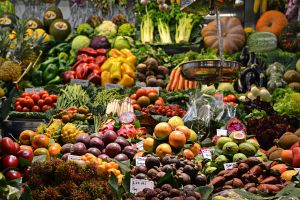Efforts geared toward smallholder farmers have become more efficient and effective over the past several decades in helping to bringing millions out of poverty, enhancing food and nutrition security, and growing economies around the globe.
Executive Summary
- Feeding the world and teaching the world to feed itself is not just a humanitarian endeavor. It is vital to US national security. Food price–related unrest can have an immense impact on the stability of countries vital to US interests. Fortunately, the United States is well positioned to lead the fight against food insecurity across the globe.
- Even with increases in agricultural productivity, Africa and Asia have become increasingly dependent on global markets to satisfy their growing domestic demand for food. For example, Africa's 20 most populous countries are all net grain importers. This import dependence has made these countries more sensitive to food price volatility than ever before.
- Food price shocks can act as a catalyst for both nonviolent and armed conflict. Particularly in urban areas of lower- and middle-income countries, high food prices and reduced access can trigger protests and rioting. For example, food price–related protests toppled governments in Haiti and Madagascar in 2007 and 2008. In 2010 and 2011, food prices and grievances related to food policy were one of the major drivers of the Arab Spring.
- Unrest in the Middle East and North Africa has led to upheaval in some of the most strategically significant regions for the United States. From 2007 to 2011, instability in key oil-producing regions led to fluctuations in global energy markets and fears the unrest would spread to other major oil exporters in the Gulf. Instability in the region has also exacerbated the ongoing civil war in Syria, contributing to growing US-Russia tensions and a massive refugee crisis in Europe.
- Because food insecurity can be strongly linked to political instability, the United States should rededicate itself to a program of research, knowledge transfer, and assistance in developing agricultural capacity abroad and support national governments in pursuing strategies that proactively address food price stability in order to decouple food systems from violent unrest. This brief offers proactive policy recommendations, including:
- Improving our understanding of the relationship between food insecurity and political instability. This field is nascent, and a deeper comprehension of the linkages is important to build a policy platform.
- Leveraging US knowledge to support improvements in national and regional emergency grain reserves in key regions.
- Facilitating commodity hedging by importing governments.
- Addressing export bans, which often have devastating impact on regional markets.
- Encouraging the adoption of regional food balance sheets.
- Helping foreign governments navigate the transition from general food subsidies to targeted, means-tested food assistance.
Beyond these recommendations, and as previous Chicago Council reports have argued, combatting food insecurity will also require massive reinvestments in agricultural infrastructure, research, and development, as well as the expansion of technical education in the agricultural sector.
About the Author
Cullen S. Hendrix
Associate Professor, Sié Chéou-Kang Center for International Security and Diplomacy, Korbel School at the University of Denver
Cullen Hendrix is also a nonresident senior fellow at the Peterson Institute for International Economics and senior research advisor at the Center for Climate & Security. At the Korbel School, he directs the Environment, Food and Conflict (ENFOCO) Lab, which leverages collaborations between scientists and policymakers to produce scholarships and analysis.
